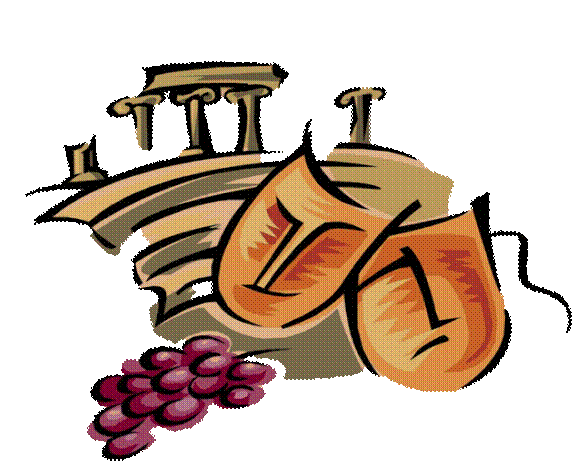
As the "Bloody Captain" from The Michigan Shakespeare Festival (2001)

As the "The Sheriff" from Calamity Jane - Lincoln High School (2008)


THEATRE DIRECTOR & TEACHER
Lincoln High School, Ypsilanti MI
This site is works best on a computer or tablet
Unit Two: Greek Tragedy
THE FINAL COPY OF YOUR PAPERWORK IS DUE
ON THE DAY OF THE GRADED PERFORMANCE
UNIT TWO CHECKLIST
Worksheets (5 @ 15 = 75)
Early Theatre History and the Greeks Study Guide (40)
Early Theatre History and the Greeks Quiz (60)
Antigone Quiz I (60)
Antigone Quiz II (50)
Antigone Study Guide (40)
Student Evaluations (20)
Participation (40)
CHARACTER AND SCENE ANALYSIS (120)
PERFORMANCE (120)
Paperwork Requirements
-
Character Analysis Sheet (25)
-
Character History (25)
-
Notated Text (25)
-
Modern English translation of the text (25)
-
Close Reading Sheet (20)
* - Missing any requirements on the list will result in an automatic 50% taken off your paperwork Grade.
Actor Checklist Greek Tragedy Style
-
Voice: Heightened word emphasis; precise diction; varied tone qualities; close to declamatory, rhetorical, oratorical, lyrical, or sung mode during the key emotional or lyrical moments.
-
Movement: Generally slow, suggestive, and rhythmic; rare use of sitting positions; rare use of physical contact with other characters; predominately presentational mode.
-
Gestures: Restrained, large, fluid, and complete; highly selective and mostly in the upper portion of the body.
-
Pantomimic Dramatization: Clear, appropriate, limited, and highly selective; rare use of hand props such as staffs, and emblems; use of full masks, half-masks, or makeup simulating a mask.
-
Character Emotion: Truthful, though somewhat larger than life; almost exclusively of high rank including gods. Complex and penetrating, particularly Sophocles and Euripides; clearly established and projected; somewhat larger than life; rooted in human psychology, particularly Euripides.
-
Ideas: Lofty, complex, clear; effectively theatricalized.
-
Language: Complex, clear, lyric, and rhythmic.
-
Mood and Atmosphere: Serious, restrained, lofty, passionate, and intense.
-
Pace and Tempo: Controlled, disciplined, rhythmic, and generally moderate to deliberate.
-
Special Techniques: Training in singing and dancing highly recommended, particularly for chorus members.

Special Note: In the ritual improvisation which is done at the end of the unit the concept of wine-drinking and bread eating is explored. This has nothing to do with Christianity. The wine represents wine and the bread represents bread (not the blood or the body.) No real religious activity is attempted or simulated.